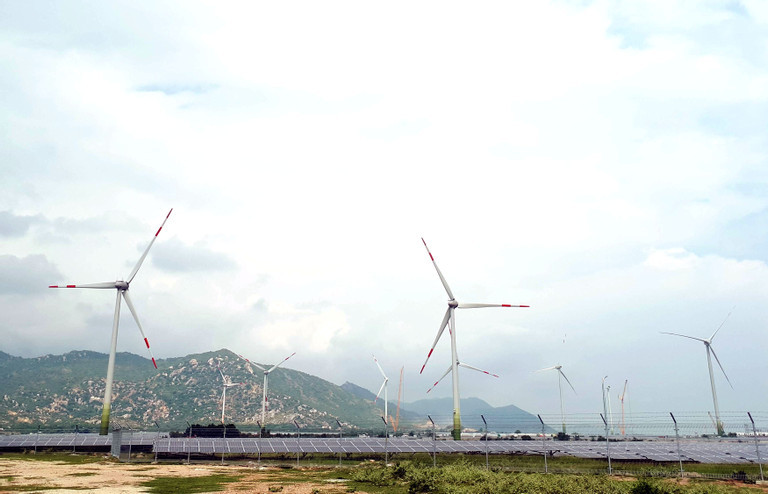
Tran Dinh Thien, former director of the Vietnam Economics Institute of Economics, commented that recently, in addition to efforts to "correct, untie, and renovate" the constraints and obstacles in policies, the Party and State have identified and shaped a new portrait of the economy in accordance with the "forward-looking" principle. On that basis, new resources and main development driving forces for the economy have been oriented.
“This is a correct path for Vietnam to follow and it is necessary to consider to develop the nation’s capabilities,” Thien said.
One of the choices, according to Thien, is the government’s ‘zero carbon’ commitment made by Vietnam at COP26. This is proof showing the vision and new approach of the country making every effort to ‘keep up with the world and advance abreast the times’.
"In essence, this is a new way of setting tasks which poses challenges for itself, a completely new approach in Vietnam."
The new orientation can be seen mostly clearly in two important categories – renewable energy development and digital transformation.
According to Thien, the approach of the eighth national power development plan (Plan 8), with priority given to renewable energy development and orientation on electricity hydrogen technology, will open up potential to improve Vietnam’s capability, not only solving the electricity shortage but also creating a new position for Vietnam in the global energy market.
There will be other large derivative benefits – the development of a green economy and mitigation of adverse effects from climate change, which are urgent goals worldwide.
Green energy, infrastructure
Nguyen Xuan Thanh from Fulbright University noted that Vietnam’s electricity-use intensity is even higher than China’s and twice as much as Thailand’s. One of the requirements of green transition is reducing energy use intensity.
If Vietnam does not reduce electricity use intensity, or if it reduces it only a little, the demand for electricity consumption will increase by 7 percent in 2024-2030.
If so, the average electricity consumption per head in Vietnam would be 4,500kwh, which is equal to the current consumption level in the UK.
China’s electricity consumption per head is 6,000 kwh, but its GDP per capita is three times higher than Vietnam’s.
In an optimistic scenario, Vietnam’s GDP per capita would reach $7,000 by 2030 (at 2022 prices), or about half of that of China currently. The projected electricity consumption level of 4,500kwh per head by 2030, however, would be too high.
Thus, Vietnam needs to enhance its electricity-use effectiveness, and if it does so, electricity demand in the future would only increase by 5-6 percent by 2030, not 7 percent as predicted.
In addition to investment in renewable energy, Thanh recommended that investment in other infrastructure facilities need to be encouraged towards green transition or carbon-neutral. The decarbonization measures should also be encouraged for existing infrastructure.
Among infrastructure items, seaports are the most important. For open economies like Vietnam, seaports play a very important role. The existing seaports, especially ones acting as international gateways (Hai Phong, HCM City, Ba Ria - Vung Tau), need to maintain their competitiveness. The state, especially local administrations, wants to develop new seaports.
Seaports are mostly developed in economic zones and industrial zones where many energy-intensive activities such as power and chemical plants, or steel mills are located. This explains why CO2 emissions from seaport areas always account for a considerable proportion.
“"The next focus of green transition in infrastructure is in major cities of Vietnam such as Hanoi, HCM City, Hai Phong, Da Nang and Can Tho. Green transition has been identified as part of the smart city model,” Thanh said.
“The National Assembly needs to continue to create a specific policy, under the 'sandbox' mode, for technological innovation so that local governments can build their cities into smart and sustainable cities with active participation of the people and businesses,” he said.
Luong Bang